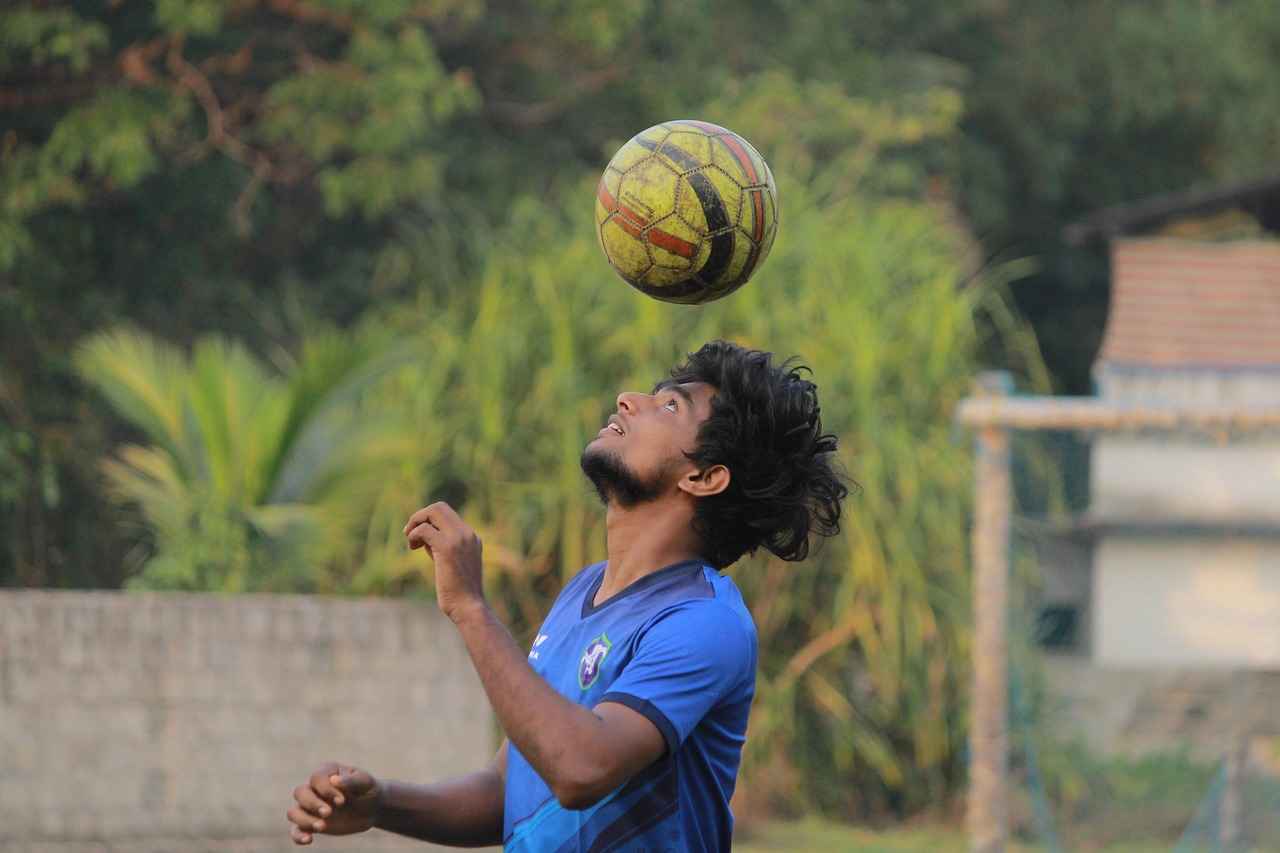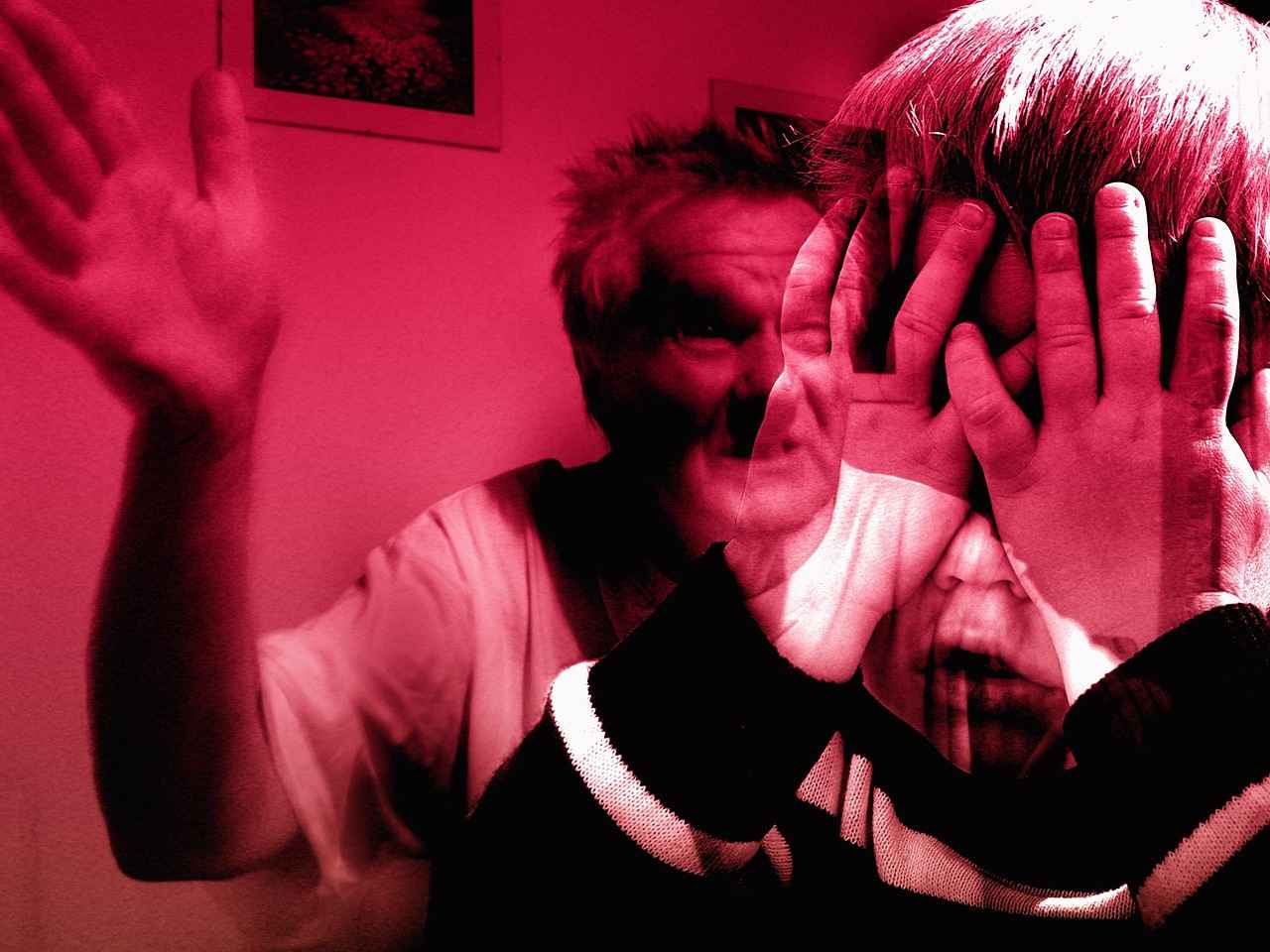This article explores the ethical implications and potential risks associated with using cheats in Blooket, a popular educational game platform. We will delve into various aspects to provide a comprehensive overview.
What Are Blooket Cheats?
Blooket cheats are methods or tools that players exploit to gain an unfair advantage in the game. These cheats can range from simple hacks to more complex software that alters gameplay. Understanding these cheats is crucial for assessing their impact on the overall gaming experience. Players often use these cheats to bypass challenges, which can lead to a skewed understanding of the educational content.
Why Do Players Use Cheats in Blooket?
Players may resort to cheats for various reasons, including:
- Competition: The desire to win against peers can drive players to cheat.
- Frustration: Some players find certain levels too difficult and may use cheats to progress.
- Quick Advancement: Players may want to level up quickly without investing time in learning.
This section examines the motivations behind cheating in educational games and highlights the potential consequences of these actions.
Impact of Cheating on Learning Outcomes
Cheating can significantly affect the learning experience in Blooket. When players use cheats, they miss out on the educational value of the game, which is designed to reinforce knowledge and skills. This section discusses how using cheats undermines the educational purpose of Blooket and alters the learning environment. It can lead to a superficial understanding of the material, ultimately impacting academic performance.
Ethical Implications of Using Cheats
The ethical considerations surrounding cheating in educational settings are complex. Students face moral dilemmas when deciding whether to use cheats, often weighing the short-term benefits against long-term consequences. This segment explores these dilemmas and the pressures that lead students to compromise their integrity.
Risks Associated with Blooket Cheats
Using cheats in Blooket can lead to various risks, including:
- Account Bans: Game developers often monitor for cheating and may ban accounts.
- Loss of Educational Integrity: Cheating diminishes the value of the learning experience.
- Reputation Damage: Players caught cheating may face social stigma among peers.
Here, we outline the potential consequences for players who choose to cheat and the long-term effects on their gaming careers.
How Cheating Affects Fair Play
Fair play is essential in any gaming environment. Cheating disrupts the balance of competition and fairness, affecting both players and the game’s integrity. This section discusses how cheating can lead to frustration among honest players and the ripple effect it creates within the community.
Alternatives to Cheating in Blooket
Instead of resorting to cheats, players can explore legitimate strategies to improve their gameplay. This section provides tips and techniques that enhance performance without ethical concerns, such as studying the game mechanics, collaborating with peers, and utilizing available resources effectively.
The Role of Educators in Addressing Cheating
Educators play a vital role in combating cheating in educational games. This section discusses strategies teachers can implement to discourage cheating, such as fostering a culture of integrity, providing support for struggling students, and creating engaging learning experiences that reduce the temptation to cheat.
Community Reactions to Cheating
The gaming community’s response to cheating can vary widely. Some players may express frustration, while others might justify the use of cheats. Here, we examine how players and educators react to the use of cheats in Blooket and the broader implications for the gaming community.
Legal Considerations Regarding Cheating
Legal issues may arise from the use of cheats, particularly concerning intellectual property and user agreements. This section outlines the legal landscape surrounding cheating in online games, emphasizing the importance of adhering to established rules and regulations.
Psychological Effects of Cheating
Cheating can have psychological repercussions for individuals. Engaging in dishonest gaming practices can lead to feelings of guilt, anxiety, and diminished self-esteem. This segment explores the emotional and psychological impacts that result from cheating.
Future of Cheating in Educational Games
As technology evolves, so too does the landscape of cheating in games like Blooket. This section speculates on future trends and how educational platforms may adapt to combat cheating, including advancements in detection technology and educational practices that promote honesty.

What Are Blooket Cheats?
Blooket Cheats: Understanding Their Nature and ImplicationsBlooket cheats are tactics or tools used by players to gain an unfair advantage in the game. These cheats can take various forms, from exploiting bugs in the system to using third-party applications that manipulate game mechanics. Understanding what constitutes a cheat is essential for players and educators alike, as it helps in assessing the broader impact on gameplay and educational integrity.
Cheats in Blooket can be categorized into several types:
- Exploits: These involve taking advantage of programming errors or glitches within the game. For instance, players might discover ways to answer questions without actually engaging with the content.
- Third-party Tools: Some players utilize external applications that provide answers or manipulate game outcomes. These tools can range from simple scripts to complex software designed specifically for cheating.
- Collusion: Players may collaborate to share answers or strategies that are not available to others, undermining the competitive aspect of the game.
Understanding Blooket cheats is crucial for a variety of reasons:
- Impact on Learning: Cheating undermines the educational objectives of Blooket, as it prevents players from genuinely engaging with the material and learning.
- Fairness: The presence of cheats disrupts the level playing field that educational games aim to create. This can lead to frustration among honest players who invest time and effort to improve their skills.
- Accountability: Educators and game developers need to recognize the implications of cheating to implement effective measures to discourage it and promote a culture of integrity.
The use of cheats in Blooket extends beyond individual gameplay. It raises significant questions about the integrity of educational tools and their effectiveness in promoting learning. When players resort to cheats, they not only compromise their own learning experience but also affect the overall environment of the game, which is designed to foster knowledge acquisition and healthy competition.
Moreover, as educational institutions increasingly integrate gaming into their curricula, understanding the nature of cheating becomes vital. Educators must be equipped to address these challenges and find ways to maintain the integrity of educational games like Blooket.
In conclusion, recognizing and understanding Blooket cheats is essential for players and educators alike. By identifying the various forms of cheating and their implications, stakeholders can work together to promote a fair and effective learning environment. This understanding is the first step toward fostering a culture of integrity and accountability in educational gaming.

Why Do Players Use Cheats in Blooket?
Players engage with educational games like Blooket for various reasons, and while the primary goal is to learn, some may find themselves tempted to use cheats. Understanding the motivations behind this behavior is crucial for educators and game developers alike.
- Competition: In a competitive environment, players often feel pressured to perform well. The desire to win can drive individuals to seek shortcuts that offer an unfair advantage. This competitive spirit can stem from peer pressure or a strong desire to be recognized for their skills.
- Frustration with Difficulty: Educational games are designed to challenge players, but sometimes the difficulty level can be overwhelming. Players may resort to cheats as a means to bypass particularly challenging sections, leading to immediate gratification but ultimately hindering their learning process.
- Desire for Quick Progression: Many players wish to advance quickly within the game, unlocking new features or rewards. Cheating can provide a shortcut to these goals, appealing to those who may lack the patience or time to achieve success through legitimate means.
- Lack of Understanding: Some players may not fully grasp the educational value of the game. They might view it solely as a source of entertainment, leading them to prioritize winning over learning. This perspective can diminish the game’s intended purpose and encourage dishonest behavior.
- Social Influence: The gaming community can play a significant role in a player’s decision to cheat. If peers openly discuss or promote cheating, individuals may feel more inclined to follow suit. This social acceptance can create a cycle of dishonesty that is difficult to break.
Psychological Factors: The psychology behind cheating is complex. Players may experience a rush of adrenaline when they cheat, which can reinforce the behavior. Additionally, feelings of guilt or shame may arise afterward, creating a paradox where the immediate benefits of cheating clash with long-term consequences.
Perception of Fairness: Players often rationalize their cheating behavior by perceiving it as a leveler in a competitive landscape. They may believe that everyone is doing it, which can diminish their sense of accountability. This mindset can lead to a broader acceptance of cheating within the gaming community.
Conclusion: Understanding why players cheat in Blooket is essential for addressing the issue effectively. By recognizing these motivations, educators can develop strategies to promote integrity and encourage legitimate gameplay. Fostering an environment that values learning over competition may reduce the appeal of cheats and enhance the educational experience for all players.

Impact of Cheating on Learning Outcomes
Cheating in educational environments, particularly in platforms like Blooket, can have profound implications for learning outcomes. When students choose to use cheats, they not only compromise their own educational journey but also affect the learning dynamics within their classroom. Understanding the ramifications of cheating is essential for educators, students, and parents alike.
- Undermining Educational Goals: The primary purpose of educational games like Blooket is to facilitate learning through engagement and interaction. Cheating disrupts this fundamental goal by allowing students to bypass the challenges that are designed to enhance their knowledge and skills. Instead of grappling with difficult concepts, students who cheat miss out on valuable learning experiences.
- Impaired Skill Development: Cheating often results in a superficial understanding of the material. Students may achieve high scores without truly grasping the content, leading to gaps in knowledge that can hinder future academic performance. This lack of comprehension can have long-term consequences, especially as they advance to more complex subjects.
- Altered Peer Dynamics: When cheating becomes prevalent in a learning environment, it can create a sense of distrust among students. Those who put in the effort to study and engage with the material may feel demotivated when they see their peers gaining rewards without the same level of commitment. This can lead to a toxic atmosphere where competition overshadows collaboration.
- Impact on Teacher Assessments: Educators rely on assessments to gauge student understanding and progress. Cheating skews these assessments, making it difficult for teachers to identify areas where students may need additional support. This misrepresentation of student capabilities can lead to misguided teaching strategies that do not address the actual learning needs of the class.
- Long-Term Consequences: The habits formed through cheating can extend beyond the classroom. Students who regularly cheat may carry these behaviors into their professional lives, where integrity and ethical conduct are paramount. This can result in a lack of accountability and a diminished sense of responsibility in their future endeavors.
In summary, cheating in Blooket and similar educational platforms can significantly undermine the learning experience. It not only detracts from the educational goals of the game but also alters the dynamics of the learning environment, impacting peer relationships and teacher assessments. The long-term consequences of such behavior can extend well beyond the classroom, fostering a culture that may prioritize short-term gains over genuine learning and personal growth. By recognizing these impacts, educators can better address cheating and promote a more honest and enriching learning atmosphere.

Ethical Implications of Using Cheats
Blooket Cheats: Ethical Considerations and RisksThe ethical implications of using cheats in educational platforms like Blooket raise significant questions about integrity, fairness, and the overall educational experience. In this section, we will delve into the complexities surrounding these moral dilemmas faced by both students and educators.
At the core of the ethical debate surrounding cheating is the conflict between academic integrity and the desire for success. Students may feel pressured to perform well, leading them to consider cheating as a viable option. This pressure can stem from various sources, including parental expectations, peer competition, and a desire to maintain scholarships or grades.
Educators find themselves in a challenging position when it comes to addressing cheating. They must balance the need to uphold academic standards with an understanding of the pressures students face. This often involves creating a supportive environment that encourages honesty while also implementing strict policies against cheating.
Using cheats not only undermines the educational process but also has long-term consequences for students. Engaging in dishonest behavior can lead to a lack of confidence in one’s abilities and a diminished sense of achievement. In the long run, this can affect a student’s self-esteem and their approach to future challenges.
Peer influence plays a significant role in the decision to cheat. When students observe their peers using cheats without facing consequences, they may feel compelled to follow suit. This creates a cycle of dishonesty that can permeate the educational environment, making it essential for educators to foster a culture of integrity.
To combat the ethical issues surrounding cheating, schools and educators must implement comprehensive strategies. These can include educational programs that emphasize the importance of academic integrity, as well as open discussions about the consequences of cheating. By addressing the root causes of cheating, educators can help students make more ethical choices.
One effective approach to reduce cheating is to create a supportive learning environment that encourages students to seek help when they struggle. Providing resources such as tutoring, study groups, and mental health support can alleviate some of the pressures that lead to cheating. When students feel supported, they are less likely to resort to dishonest practices.
Encouraging students to reflect on their motivations for cheating can also be beneficial. By understanding the underlying reasons behind their actions, students can develop a greater sense of accountability and make more informed choices in the future. This self-reflection can foster a deeper understanding of the importance of integrity in both academic and personal contexts.
In conclusion, the ethical implications of using cheats in educational settings are multifaceted and require careful consideration. By fostering an environment of support, encouraging open dialogue, and promoting self-reflection, educators can help students navigate these moral dilemmas more effectively. Ultimately, the goal is to uphold academic integrity while supporting students in their educational journeys.

Risks Associated with Blooket Cheats
Using cheats in Blooket may seem like a tempting shortcut for players seeking to enhance their gaming experience, but the **risks** involved can be significant and far-reaching. This section delves into the potential consequences of cheating, highlighting why players should think twice before engaging in such practices.
- Account Bans: One of the most immediate risks of using cheats in Blooket is the possibility of being banned from the platform. Blooket employs various detection methods to identify cheating behavior, and players caught using cheats may face permanent suspension of their accounts. This not only results in the loss of access to their current progress but also the loss of any purchased items or rewards.
- Loss of Educational Integrity: Blooket is designed as an educational tool to facilitate learning through gamification. Cheating undermines this purpose, leading to a **diminished learning experience**. When players opt for cheats, they miss out on the valuable educational content that the game offers, which can hinder their academic growth.
- Impact on Peer Relationships: Cheating can also strain relationships among players. When one player gains an unfair advantage, it can foster resentment and frustration among peers. This can lead to a toxic gaming environment where trust is eroded, ultimately impacting the community’s overall experience.
- Psychological Effects: Engaging in dishonest practices can have psychological ramifications for individuals. Players may experience feelings of guilt, anxiety, or shame after cheating, which can affect their mental well-being. The pressure to maintain a facade of success can also lead to increased stress.
- Legal Consequences: In some cases, using cheats can lead to legal repercussions. Many online games, including Blooket, have terms of service that prohibit cheating. Violating these terms can result in legal action from the game developers, particularly if cheats infringe on intellectual property rights.
- Increased Difficulty in Future Gameplay: Once a player resorts to cheating, they may find it challenging to return to legitimate gameplay. Cheating can create a dependency on shortcuts rather than developing skills and strategies necessary for success. This can lead to a frustrating experience when they attempt to play without cheats.
In summary, while the allure of cheating in Blooket may be strong, the potential risks associated with such actions are significant. From account bans and loss of educational integrity to psychological effects and legal consequences, players should consider the long-term implications of their choices. Engaging in fair play not only enhances the gaming experience but also upholds the educational values that platforms like Blooket strive to promote. By opting for legitimate strategies, players can enjoy the game while fostering a supportive and enriching environment for themselves and their peers.

How Cheating Affects Fair Play
Fair play is a fundamental principle that underpins any gaming environment, fostering an atmosphere of respect, integrity, and equality among players. In educational platforms like Blooket, where the primary goal is to enhance learning through interactive gameplay, the introduction of cheating can severely disrupt this balance. This section aims to explore the various ways in which cheating undermines fair play and its broader implications on both players and the integrity of the game itself.
Cheating in Blooket can manifest in several forms, from using unauthorized tools to gain an unfair advantage to exploiting glitches within the game. These actions not only skew the competition but also create an uneven playing field. When some players cheat, they essentially negate the hard work and effort of those who are playing fairly. This can lead to a sense of frustration and demotivation among honest players, who may feel that their commitment to fair play is not rewarded.
Moreover, the impact of cheating extends beyond individual players; it can tarnish the overall reputation of the game. As cheating becomes more prevalent, the integrity of Blooket as a learning tool is called into question. Educators and institutions that utilize such platforms for teaching may reconsider their choices if they perceive a lack of fairness in gameplay. This can ultimately affect the educational outcomes intended by using the game, as students may not engage with the material as intended, knowing that cheating is an option.
In addition to the immediate effects on gameplay, cheating can also foster a culture of dishonesty. When players see others cheating and getting away with it, they may feel pressured to follow suit, creating a vicious cycle. This behavior can alter the social dynamics of the gaming community, leading to mistrust and resentment among players. It is important to recognize that fair play is not just about following the rules; it is about creating a supportive and respectful environment where all participants can thrive.
Furthermore, the emotional and psychological ramifications of cheating should not be overlooked. Players who cheat may experience guilt or anxiety, knowing that their achievements are not a true reflection of their abilities. Conversely, those who play fairly may feel a sense of pride and accomplishment, reinforcing the positive aspects of fair competition. The distinction between these experiences highlights the importance of fostering a culture that values integrity over shortcuts.
To combat the negative effects of cheating, it is crucial for educators, game developers, and the gaming community to work together. Implementing measures such as monitoring gameplay, educating players about the importance of fair play, and creating a supportive community can help mitigate the risks associated with cheating. By prioritizing fairness and integrity, we can ensure that educational platforms like Blooket remain effective tools for learning and growth.
In conclusion, cheating poses significant challenges to fair play within gaming environments. Its disruptive effects can lead to frustration among players, damage the integrity of the game, and foster a culture of dishonesty. By emphasizing the importance of fair play and implementing strategies to discourage cheating, we can create a more equitable and enriching gaming experience for all.

Alternatives to Cheating in Blooket
In the realm of online educational games like Blooket, the temptation to cheat can be strong. However, there are numerous legitimate strategies that players can employ to improve their gameplay without compromising their integrity. This section will explore various techniques and tips that can enhance performance and enrich the learning experience.
One of the most effective ways to improve in Blooket is to adopt active study techniques. Instead of passively reading or memorizing information, players should engage with the material. Techniques such as summarizing information in their own words, teaching concepts to others, or using flashcards can significantly boost retention and understanding.
Collaboration can be a powerful tool in enhancing gameplay. Players can form study groups where they share knowledge, quiz each other, and discuss strategies. This not only makes learning fun but also allows players to gain different perspectives on the material, which can lead to a deeper understanding.
Regular practice is key to mastering any game, including Blooket. Players should set aside dedicated time for practice, utilizing the game’s various modes to reinforce their knowledge. The more they play, the more familiar they become with the questions and answers, leading to improved performance.
Blooket offers various game modes and features that can enhance the learning experience. Players should take the time to explore these options, such as different question types and themes, to find what works best for them. Understanding the game mechanics can give players an edge without resorting to cheating.
Setting realistic and achievable goals can motivate players to improve their skills. Whether it’s aiming for a certain score or mastering a particular topic, having clear objectives can guide players in their learning journey and provide a sense of accomplishment.
Feedback is essential for growth. Players should not hesitate to ask teachers or peers for feedback on their performance. Understanding areas that need improvement can help players focus their efforts effectively and enhance their overall gameplay.
Staying updated on any changes or new features in Blooket can provide players with an advantage. Following the game’s official channels or community forums can help players learn about new strategies, tips, and tricks that others have discovered.
A positive attitude can significantly impact performance. Players should approach Blooket with a mindset focused on learning and improvement rather than solely on winning. Emphasizing the educational aspect of the game can enhance motivation and reduce the temptation to cheat.
By employing these legitimate strategies, players can not only enhance their gameplay in Blooket but also foster a genuine love for learning. Cheating may offer a quick fix, but the skills and knowledge gained through honest effort will provide lasting benefits.

The Role of Educators in Addressing Cheating
In the realm of educational gaming, particularly on platforms like Blooket, the role of educators extends beyond traditional teaching methods. They are crucial in fostering an environment that discourages cheating and promotes honest gameplay. This section explores effective strategies that teachers can implement to combat cheating, ensuring that the educational benefits of games are fully realized.
- Establish Clear Expectations: One of the first steps educators can take is to set clear guidelines regarding cheating. By explicitly stating what constitutes cheating and the consequences associated with it, teachers can create a culture of integrity. This can be done through classroom discussions or written policies that are shared with students.
- Promote a Growth Mindset: Encouraging a growth mindset can significantly reduce the temptation to cheat. When students understand that mistakes are part of the learning process, they may be less likely to seek shortcuts. Educators can foster this mindset by celebrating effort and improvement rather than just outcomes.
- Utilize Game Mechanics Wisely: Educators can leverage the game mechanics of Blooket to discourage cheating. For instance, designing games that require collaboration or teamwork can shift the focus from individual competition to collective achievement. This approach not only reduces cheating but also enhances social skills and cooperation among students.
- Integrate Reflection and Discussion: After gameplay sessions, incorporating reflection activities can help students think critically about their experiences. Questions like, “What strategies did you use to succeed?” and “How can we ensure fair play?” encourage students to internalize the importance of honesty in gaming.
- Provide Support and Resources: Sometimes, students cheat due to a lack of understanding or confidence in their abilities. Educators can address this by providing additional resources, such as tutorials or study guides, to help students improve their skills without resorting to cheating. This support can empower learners and build their self-esteem.
- Foster an Open Communication Channel: Creating an environment where students feel comfortable discussing their challenges can significantly reduce cheating. Educators should encourage students to voice their concerns or frustrations about the game or its difficulty. When students feel heard and supported, they are less likely to cheat.
- Model Ethical Behavior: Educators themselves must model ethical behavior in gaming. By demonstrating fairness, honesty, and respect for the rules, teachers set a powerful example for their students. This modeling can reinforce the values of integrity and sportsmanship in educational gaming.
By implementing these strategies, educators can play a pivotal role in addressing cheating in educational games like Blooket. Not only do these approaches help maintain the integrity of the gaming experience, but they also contribute to a more enriching learning environment. Ultimately, the goal is to ensure that students engage with educational games in a way that enhances their learning and personal growth.

Community Reactions to Cheating
The gaming community’s response to cheating is a multifaceted issue that reflects a range of perspectives and emotions. Within platforms like Blooket, reactions can vary significantly among players, educators, and developers. Understanding these reactions is crucial for fostering a healthy gaming environment.
- Players’ Perspectives: Many players express frustration towards those who cheat, feeling that it undermines the spirit of competition. For instance, players who invest time to learn the game may feel cheated themselves when they encounter opponents using unfair advantages. This sentiment can lead to a toxic atmosphere, where genuine players disengage from the game altogether.
- Educators’ Concerns: Educators often view cheating in educational games like Blooket as a serious issue. They worry that cheating not only diminishes the learning experience but also sets a poor example for students. When students resort to cheats, it can foster a mindset that prioritizes shortcuts over hard work and integrity.
- Developer Responses: Game developers are also keenly aware of the cheating epidemic. Many implement measures to mitigate cheating, such as banning accounts or updating game mechanics to make cheating more difficult. Developers often engage with the community to gather feedback on how to address these issues effectively.
Emotional Reactions
Cheating elicits strong emotional responses from the community. Players may experience feelings of anger, betrayal, and disappointment. These emotions can lead to heated discussions in forums and social media, where players share their experiences and frustrations. Such discussions can sometimes escalate into blame games, where players accuse each other of being dishonest or lacking skill.
Educational Implications
The broader implications of cheating extend into educational realms. When students cheat on platforms like Blooket, they miss out on valuable learning opportunities. This can lead to a cycle where students become reliant on cheats instead of developing critical thinking and problem-solving skills. Educators are tasked with finding ways to address this issue, often by emphasizing the importance of integrity and the long-term benefits of honest gameplay.
Community Initiatives
In response to the challenges posed by cheating, some communities have initiated programs aimed at promoting fairness and integrity. These initiatives may include workshops or discussions on the importance of ethical gaming practices. By fostering a culture of honesty, communities can help mitigate the negative effects of cheating and encourage players to engage with the game in a meaningful way.
Conclusion
The response to cheating in the gaming community, particularly in educational settings like Blooket, is complex and varied. Players, educators, and developers all play a role in shaping the narrative around cheating. By understanding these perspectives and fostering open dialogue, the gaming community can work towards creating a more equitable and enriching gaming environment.

Legal Considerations Regarding Cheating
Cheating in online games, including educational platforms like Blooket, raises significant legal issues that players often overlook. These issues primarily revolve around intellectual property rights and the terms of service agreements that users consent to upon joining the platform. Understanding these legal implications is crucial for players who may not be aware of the potential consequences of their actions.
One of the primary legal concerns associated with cheating is the violation of intellectual property laws. Many cheats involve the use of unauthorized software or modifications that can infringe on the copyrights and trademarks held by the game developers. For instance, using a cheat tool that alters the game’s code can be classified as a breach of copyright, leading to potential legal action from the developers against the offending player.
Moreover, players often agree to a user agreement or terms of service when they create an account on gaming platforms. These agreements typically include clauses that prohibit cheating, hacking, and the use of unauthorized third-party tools. Violating these terms can result in severe penalties, including account suspension, banishment from the platform, and even legal action in extreme cases. Players must understand that by choosing to cheat, they are not only jeopardizing their own gaming experience but also risking their legal standing with the platform.
In addition to the potential for legal repercussions from game developers, players should also be aware of the broader implications of cheating within the gaming community. Cheating can undermine the integrity of the game, leading to a toxic environment that affects all players. This degradation of trust can discourage new players from joining and can result in a decline in the overall quality of the gaming experience.
Furthermore, legal action can extend beyond the game developers. If a player uses cheats that involve stealing personal data or violating privacy laws, they could face legal consequences from affected parties. For example, if a cheat tool is designed to harvest user data or manipulate in-game transactions, it could lead to investigations and lawsuits regarding data protection laws.
Ultimately, the legal landscape surrounding cheating in online games is complex and multifaceted. Players should be informed about the potential risks and consequences of their actions. Engaging in cheating not only compromises the ethical standards of gaming but also poses significant legal threats that could have lasting effects on a player’s reputation and legal standing.
In summary, while the allure of gaining an advantage through cheats may be tempting, the potential legal ramifications make it a risky endeavor. Players should consider the long-term implications of their actions and strive to engage in fair play, thereby contributing to a more positive and lawful gaming environment.

Psychological Effects of Cheating
Cheating in educational games like Blooket extends beyond mere rule-breaking; it can lead to significant emotional and psychological repercussions for individuals. Engaging in dishonest practices can create a myriad of feelings that impact both the cheater and their peers.
- Guilt and Shame: One of the most immediate psychological effects of cheating is the feeling of guilt. Cheaters often grapple with the knowledge that they have acted dishonestly, leading to feelings of shame. This internal conflict can result in anxiety and stress, as individuals worry about being caught or facing consequences.
- Loss of Self-Esteem: Cheating can also diminish a person’s self-esteem. When players rely on dishonest methods to succeed, they may feel inadequate or unworthy of their achievements. This can create a vicious cycle where the individual feels compelled to cheat again to maintain their perceived level of success.
- Impact on Relationships: Cheating can strain relationships with peers and educators. Trust is fundamental in any educational environment, and once it is broken, it can be challenging to rebuild. Cheaters may find themselves isolated, as others may choose to distance themselves from someone they perceive as dishonest.
- Desensitization to Dishonesty: Regularly engaging in cheating can lead to desensitization. Over time, individuals may become more comfortable with dishonest practices, potentially extending this behavior beyond gaming into other areas of their lives, including academics and personal relationships.
- Fear of Failure: The reliance on cheats often stems from an underlying fear of failure. Players may cheat to avoid the discomfort associated with not performing well. This fear can hinder personal growth and the development of essential problem-solving skills, as individuals may not learn how to overcome challenges through legitimate means.
The emotional turmoil associated with cheating can have lasting effects. It can lead to chronic stress, anxiety disorders, and even depression in some cases. The psychological burden of maintaining a facade can be exhausting, ultimately impacting academic performance and overall well-being.
Moreover, the implications of cheating extend beyond individual experiences. They can affect the broader educational environment, fostering a culture where dishonesty is normalized. This can lead to a decline in the value placed on education and learning, as students may prioritize winning over understanding and growth.
In conclusion, while cheating may provide a temporary advantage in games like Blooket, the psychological effects are profound and far-reaching. Players should consider the long-term consequences of their actions and strive for integrity in their gaming experiences. Engaging in honest gameplay not only fosters personal growth but also contributes to a healthier and more supportive gaming community.

Future of Cheating in Educational Games
As technology continues to advance at a rapid pace, the landscape of cheating in educational games like Blooket is evolving as well. Understanding these changes is essential for educators, students, and game developers alike. This section will explore potential future trends in cheating and how educational platforms might adapt to combat these challenges.
One of the most significant trends is the rise of **artificial intelligence (AI)** and **machine learning**. These technologies can create sophisticated cheating tools that analyze gameplay patterns and exploit weaknesses in game mechanics. For instance, AI-driven bots could mimic human behavior, making it difficult for educators to detect cheating. As these tools become more accessible, students may be tempted to use them to gain an unfair advantage.
In response, educational platforms may need to implement **advanced detection systems**. These systems could leverage AI to monitor gameplay for unusual patterns indicative of cheating. By analyzing data in real-time, platforms can identify and flag suspicious behavior, ensuring a fair playing environment. This proactive approach could deter potential cheaters and maintain the integrity of educational games.
Furthermore, the integration of **blockchain technology** could revolutionize how educational games operate. Blockchain offers a transparent and immutable ledger that records every action taken within a game. By utilizing this technology, developers can create a system where cheating is easily traceable, and players are held accountable for their actions. This could significantly reduce the prevalence of cheating, as the consequences would be more immediate and severe.
Another trend to consider is the evolving role of **gamification** in education. As educators incorporate more game-like elements into their teaching methods, the potential for cheating may increase. However, this also presents an opportunity to engage students more deeply. By focusing on intrinsic motivation and personal growth rather than competition, educators can create an environment where cheating is less appealing.
Moreover, the community’s response to cheating will likely shape the future of educational games. As awareness around the ethical implications of cheating grows, players may advocate for fair play and integrity. This cultural shift could lead to a stronger emphasis on honesty and collaboration among players, further discouraging cheating behaviors.
In conclusion, the future of cheating in educational games like Blooket is uncertain but ripe with possibilities. As technology evolves, so too must the strategies employed by educators and game developers. By embracing innovation and fostering a culture of integrity, the educational gaming community can work together to combat cheating effectively. The collaboration between technology and ethical considerations will be critical in creating a fair and enriching learning environment for all players.
Frequently Asked Questions
- What are Blooket cheats?
Blooket cheats are methods or tools that players use to gain an unfair advantage in the game. These can range from hacks to shortcuts that help players progress faster or win more easily.
- Why do players cheat in Blooket?
Players might cheat for various reasons, such as wanting to win competitions, feeling frustrated with the game’s difficulty, or simply wanting to level up quickly without putting in the effort.
- What are the risks of using cheats?
Using cheats can lead to serious consequences like account bans, loss of educational integrity, and a negative impact on the overall gaming experience for everyone involved.
- How does cheating affect learning outcomes?
Cheating undermines the educational purpose of Blooket, making it harder for players to genuinely learn and engage with the material, which can hinder their academic growth.
- What can players do instead of cheating?
Instead of cheating, players can explore legitimate strategies like studying the material, practicing more, or collaborating with peers to improve their gameplay without ethical concerns.
- What role do educators play in addressing cheating?
Educators can implement strategies to discourage cheating, such as fostering a culture of integrity, providing support, and creating engaging learning environments that minimize the temptation to cheat.














